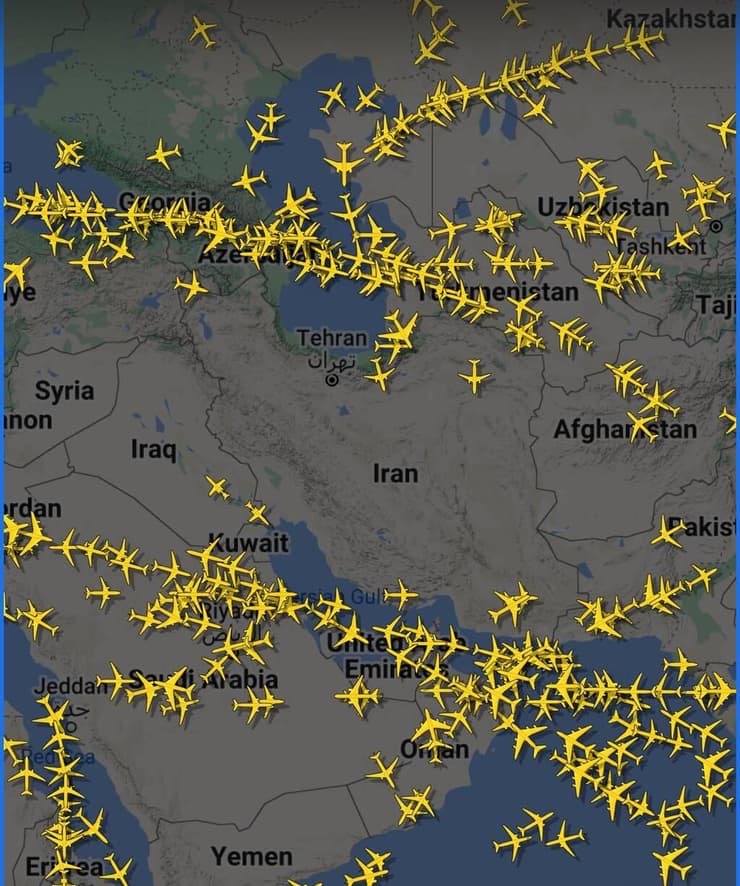Impact of Iranian-Israeli Tensions on Aviation: Flight Cancellations, Route Diversions, and Increased Risks

The recent military escalation between Iran and Israel has caused significant disruptions in civilian aviation across the Middle East. American strikes on Iranian targets have led to widespread flight cancellations, leaving tens of thousands of passengers stranded in various airports around the world.
Warnings of Escalating Threats
Aviation safety monitoring organizations have issued urgent warnings about increased risks to American airlines operating in the region following US attacks on Iranian nuclear facilities. The aviation risk specialist site, Safe Airspace, has stated that potential Iranian retaliation may directly target American military interests or their proxies, further increasing potential threats to civilian aviation.
Airspace Closures and Route Changes
Air traffic monitoring data has shown a noticeable vacuum in the airspace over Iran, Iraq, Syria, and Israel, prompting many airlines to divert their flight paths through alternative routes such as the northern Persian Gulf or via Egyptian and Saudi Arabian airspace, despite the additional costs involved.
Flight Cancellations and Service Suspensions
Several major airlines have canceled their flights to key destinations in the region. Air France-KLM announced the suspension of flights to and from Dubai and Riyadh, while Singapore Airlines and British Airways suspended their flights to Dubai and Doha. Meanwhile, Flydubai extended the suspension of its flights to several destinations including Iran, Iraq, Israel, and Syria until the end of the current month.
Efforts to Evacuate Stranded Individuals
In an attempt to alleviate the crisis, Israel has begun organizing rescue flights for its citizens stranded abroad. Israeli carrier El Al received requests for departure from around 25,000 individuals within one day. Israeli aviation authorities also announced an increase in rescue flights to 24 flights daily starting from Monday, with strict precautionary measures in place.
Extension of Impact to Gulf States
Specialized reports indicate the possibility of the current crisis's impact extending to other Gulf countries. Some entities have warned of the need for extreme caution when flying in the airspace of Bahrain, Kuwait, Oman, Qatar, Saudi Arabia, and the UAE.
Situation of Travelers and Tourists
Tens of thousands of travelers still face significant difficulties in returning home or leaving the region, while thousands of tourists in Israel are seeking alternative ways to depart through neighboring countries or by sea to Cyprus.
This development comes at a time when global aviation faces unprecedented challenges due to the increasing use of missiles and drones in conflict zones, raising the level of risks to aviation safety in general.